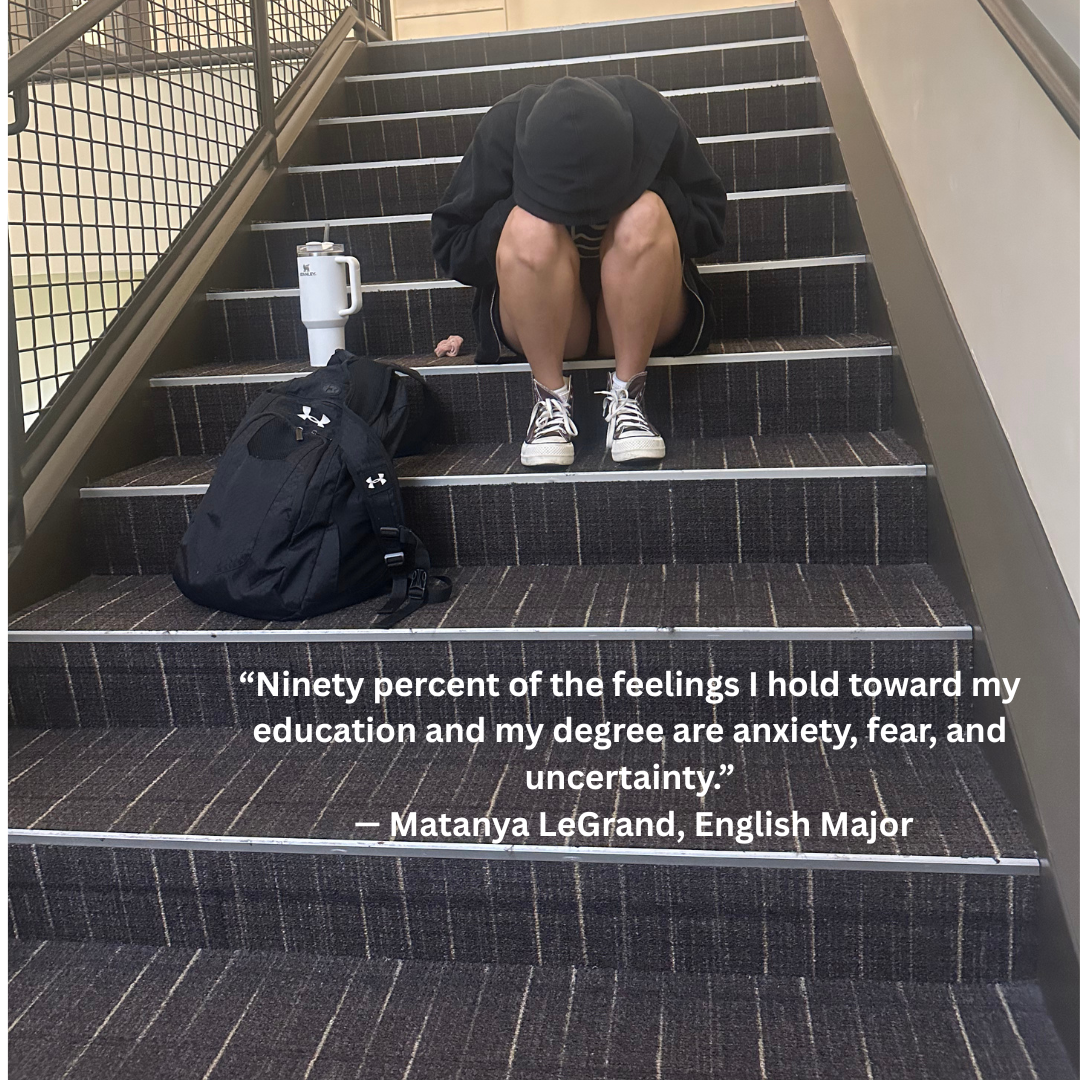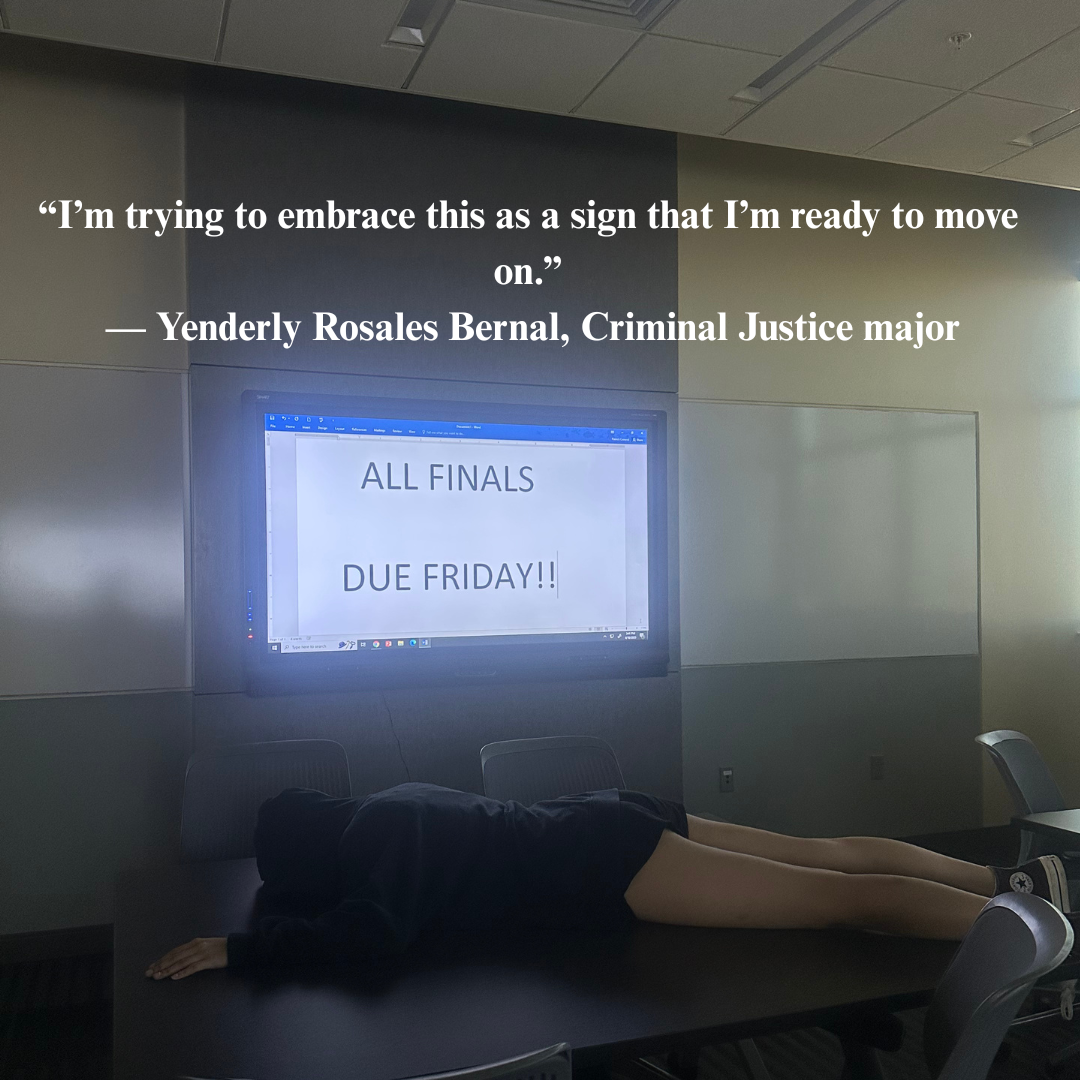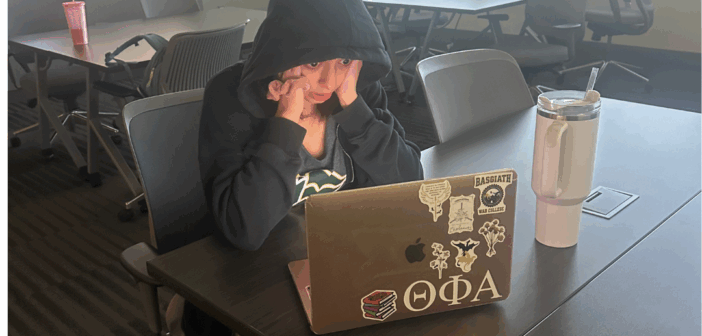By Sarah McMinn, Staff Writer
As the semester winds down and graduation nears, many seniors face a familiar struggle: senioritis. Marked by a noticeable decline in motivation, engagement, and energy, senioritis affects students in various ways.
For some, it’s a quiet burnout after years of hard work. For others, it’s an emotional tug-of-war between excitement for the future and sadness over leaving behind a pivotal chapter of life.
Matanya LeGrand, a senior English major with a concentration in professional writing, doesn’t hesitate to acknowledge the emotional toll of her final semester.
“I most certainly have senioritis; it started sometime after spring break,” LeGrand said.
For LeGrand, senioritis is less about laziness and more about exhaustion—a fatigue from constantly balancing full-time school, full-time work, and the effort to maintain a semblance of a personal life.
“I’m a full-time student, full-time employee, and only part-time human,” LeGrand said.
With graduation on the horizon, LeGrand’s motivation is fueled less by inspiration and more by sheer necessity.
“To be frank, the semester isn’t over yet, and I’m unsure if I’ll make it at this rate, “saidLeGrand.
This honesty highlights a reality many students are reluctant to share—where anxiety, burnout, and the pressure to perform often overshadow the excitement of graduating.
“90 percent of the feelings I hold toward my education and my degree are anxiety, fear, and uncertainty,” LeGrand explains.
The weight of high expectations, both self-imposed and external, has created what she refers to as a “gilded cage.”


Yenderly Rosales Bernal, a senior criminal justice major, offers a slightly different yet equally insightful perspective.
“Yes, I believe I am experiencing senioritis, but I’m trying to embrace it as a sign that I’m ready to move on. Nostalgia makes it hard to focus, and I’m feeling scared and anxious about leaving this familiar environment,” Bernal said.
Despite this, Bernal has taken a structured approach to stay grounded, creating a weekly schedule to balance studying, job hunting, and self-care. She draws strength from her family, particularly her late father.
“I want to make them proud, especially my dad, who I know is cheering for me from heaven,” Bernal said.
Her story serves as a reminder that for many students, perseverance is deeply personal. Reflection on the past and the desire to honor loved ones can be powerful motivators when the finish line feels distant.
Then there’s Jesse Poon, a senior business management major, whose experience with senioritis has been more manageable.
“Yes, I am feeling senioritis. I think it started early this semester,” said Poon.
However, instead of losing focus, Poon has found himself more motivated this year.
“I want to make sure I graduate on time,” said Poon.
His motivation is deeply tied to a sense of responsibility, both to himself and his family.
“I have always felt pressure to stay productive. I know my parents are spending a lot of money for me to go here, and I also know this education will help me to become successful,” said Poon.
From exhaustion and anxiety to nostalgia and drive, the senior experience is as diverse as the students facing it. Whether they’re burnt out or simply ready for what’s next, one thing is clear: senioritis isn’t just a slump—it’s a rite of passage.
For many, it’s the final test before stepping into the next chapter, and despite the challenges, they’re crossing the finish line with resilience, reflection, and hope.





